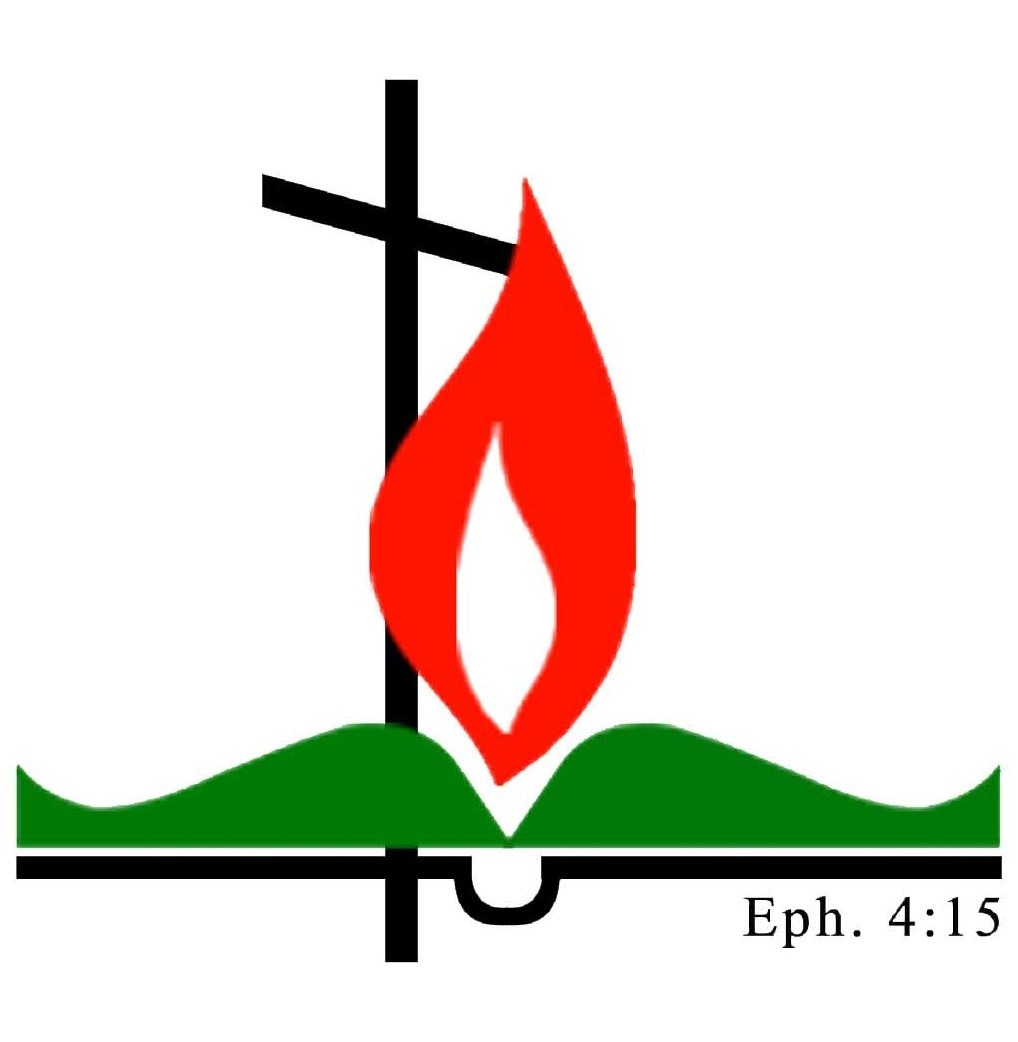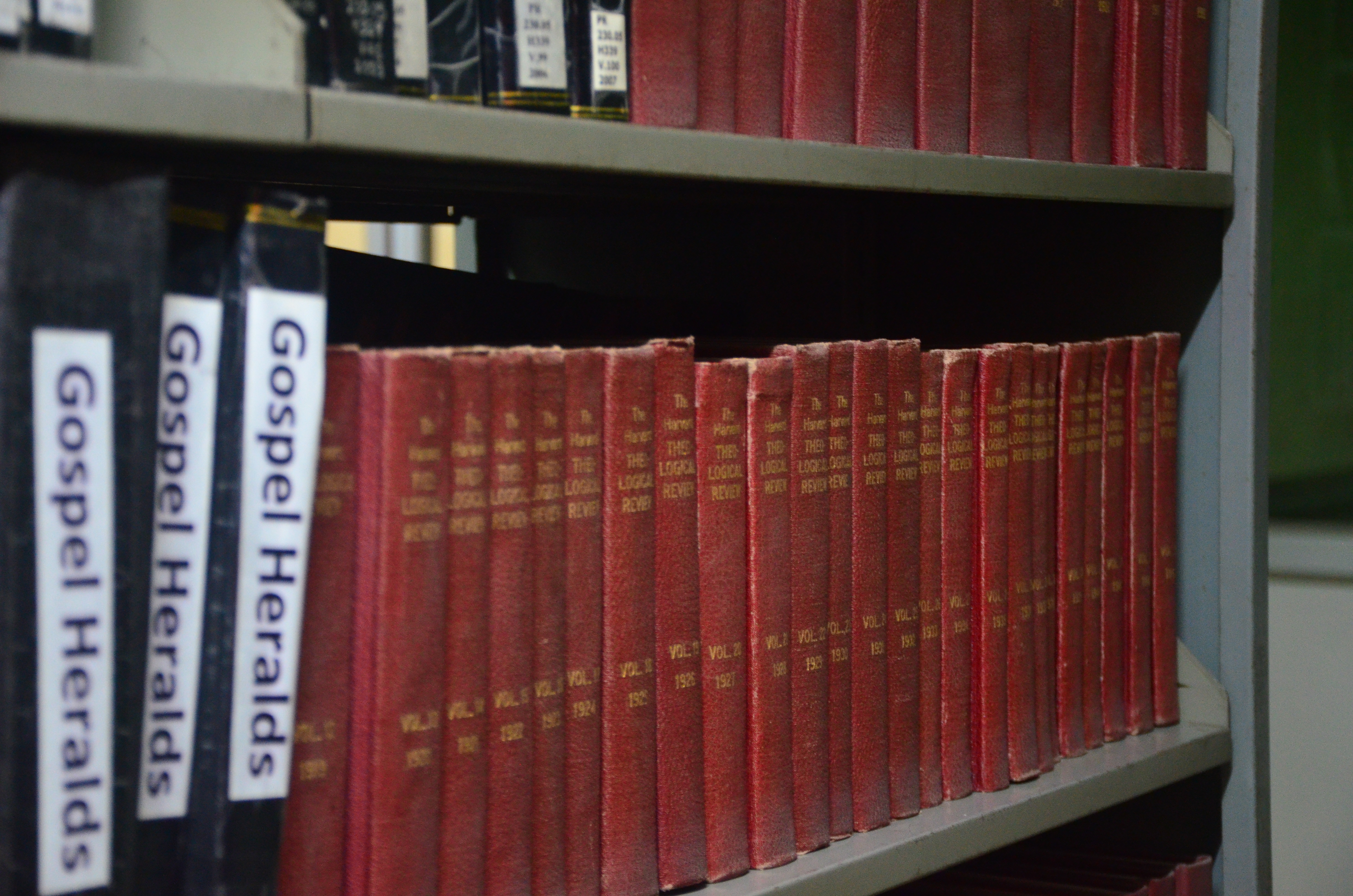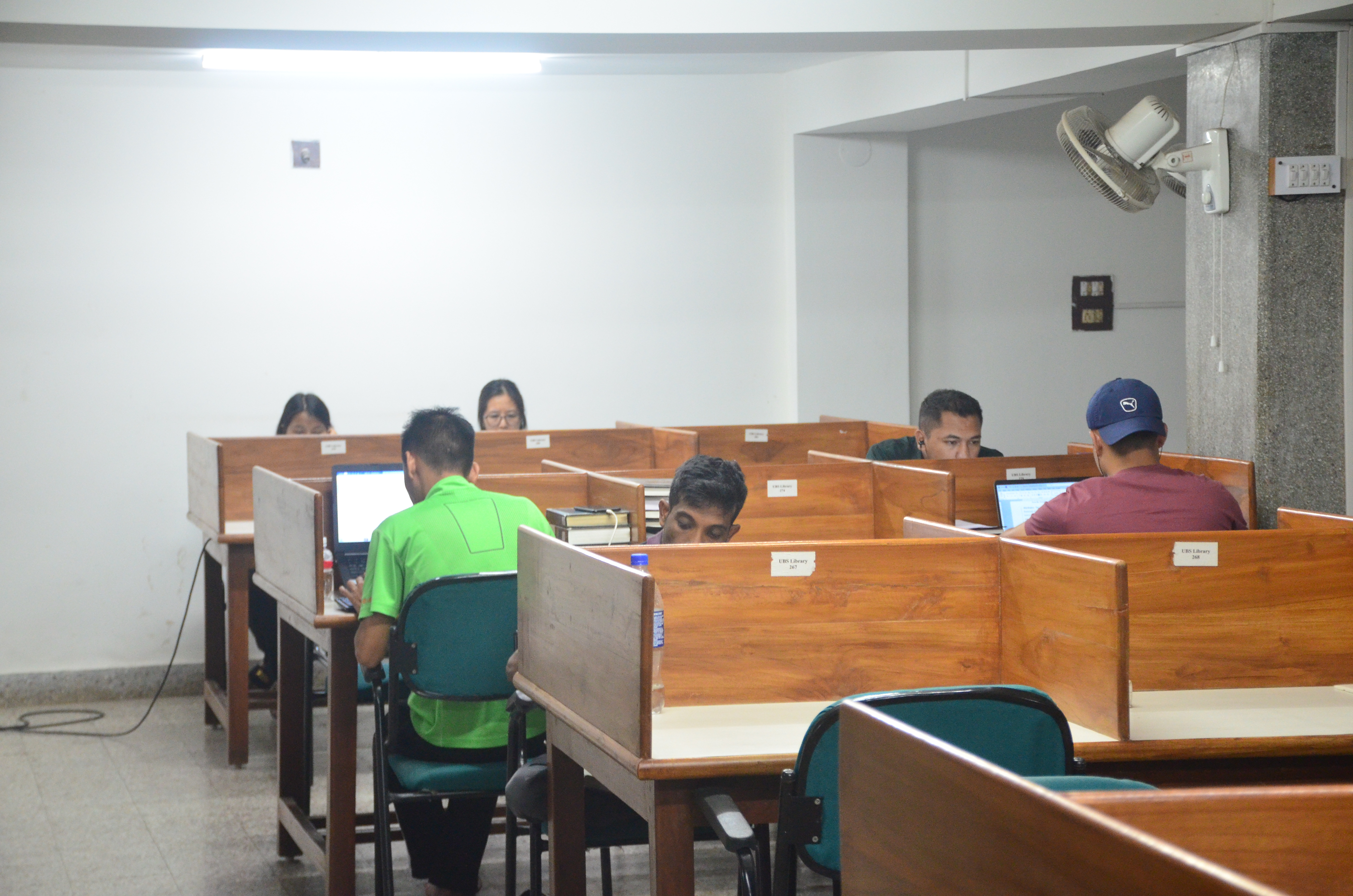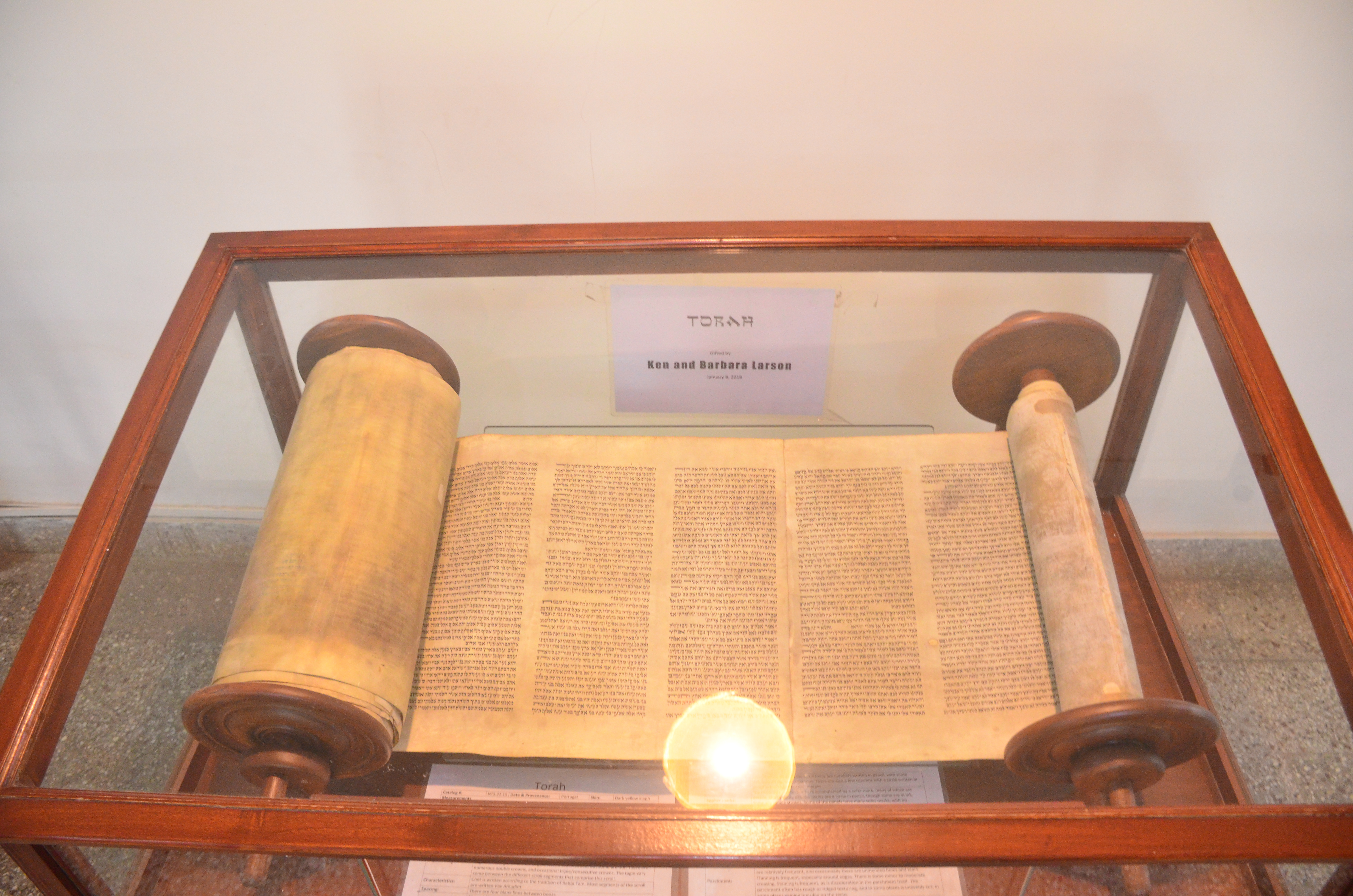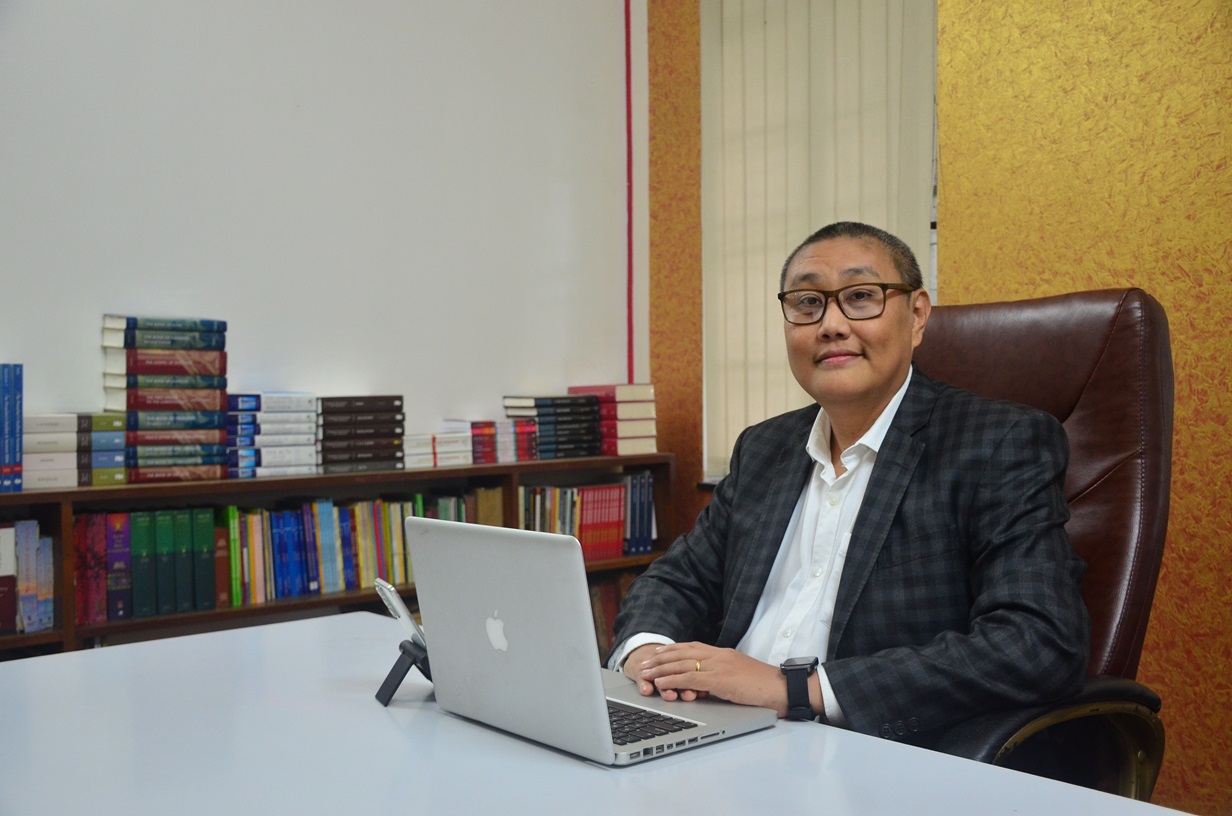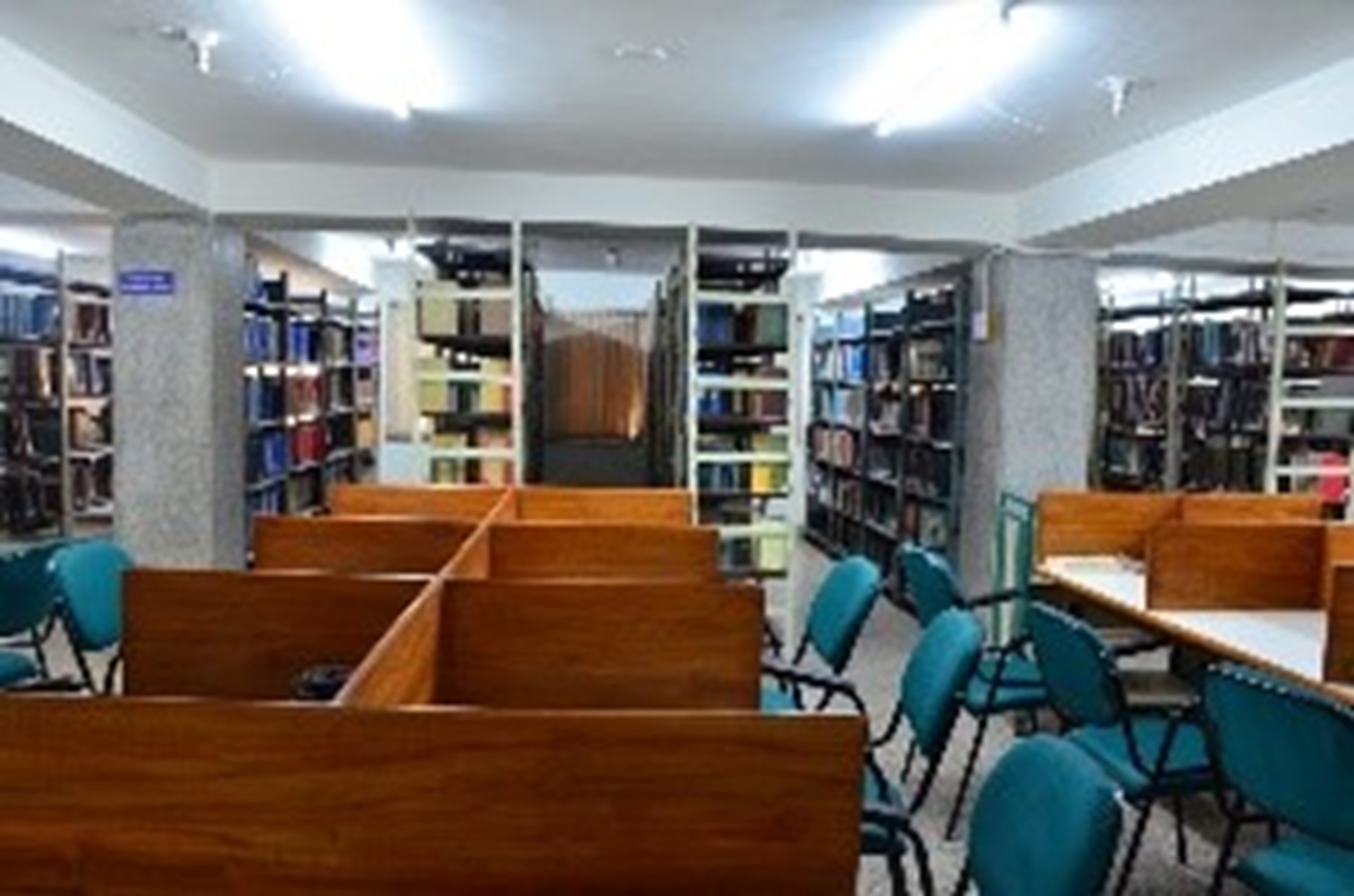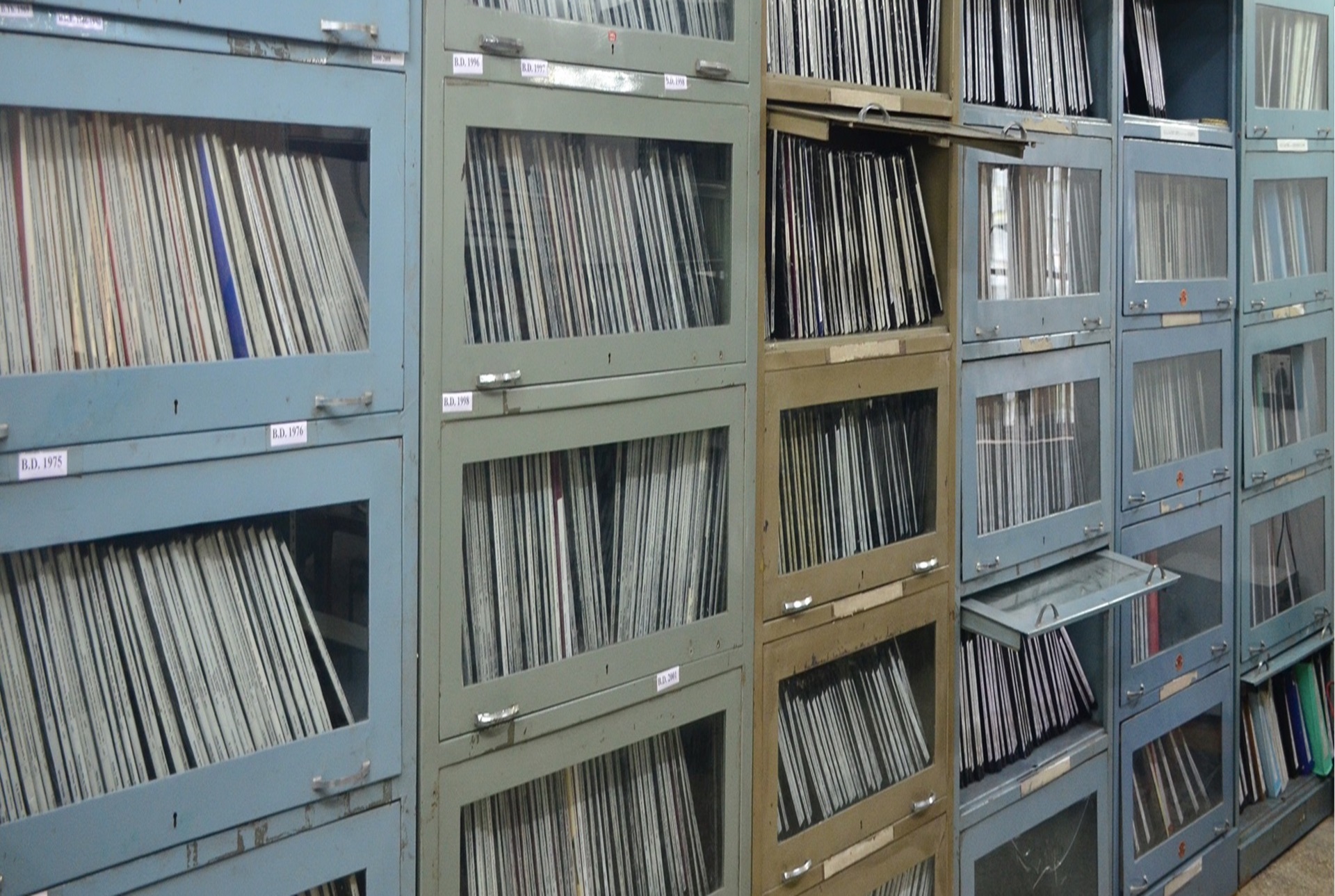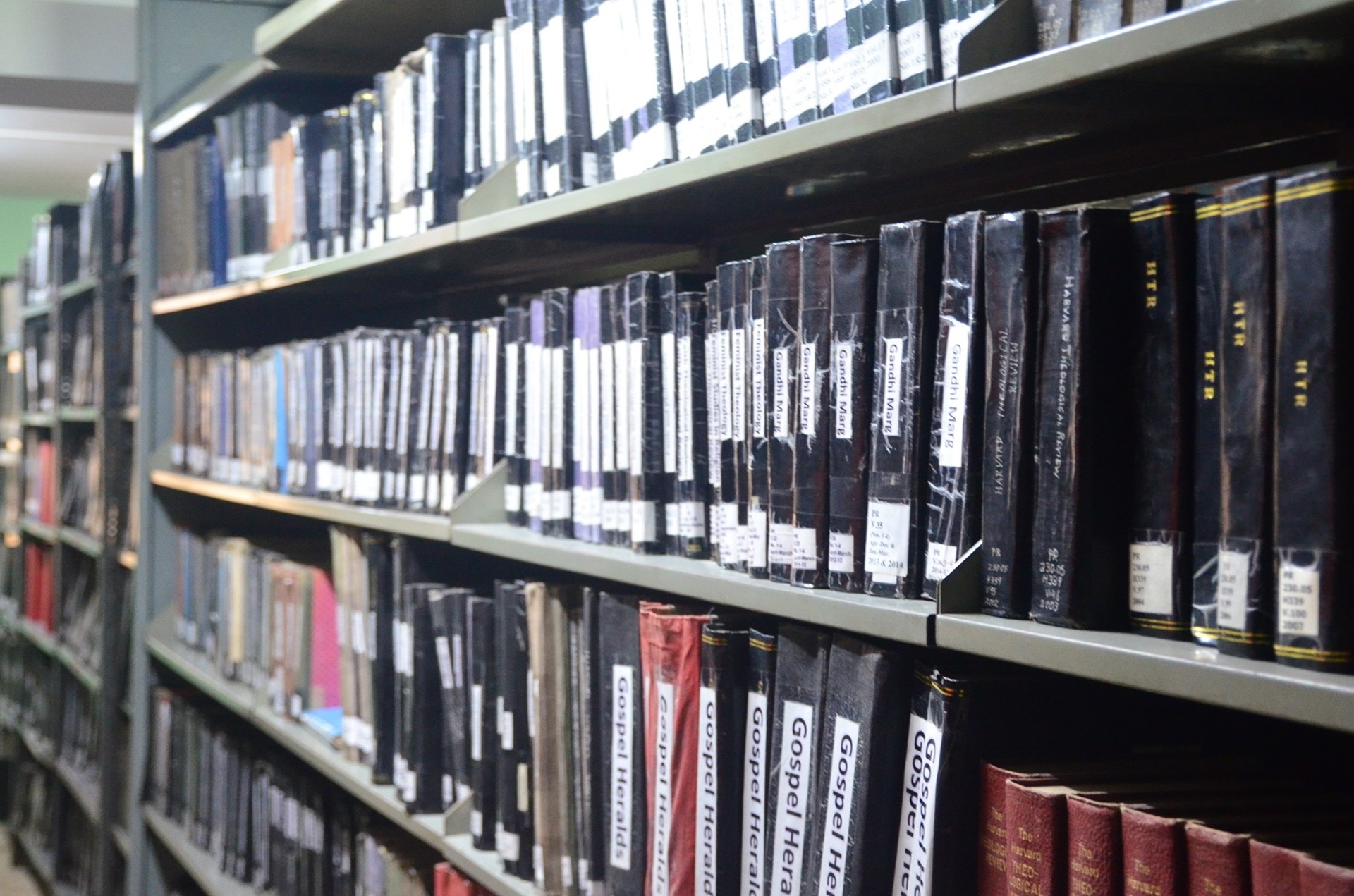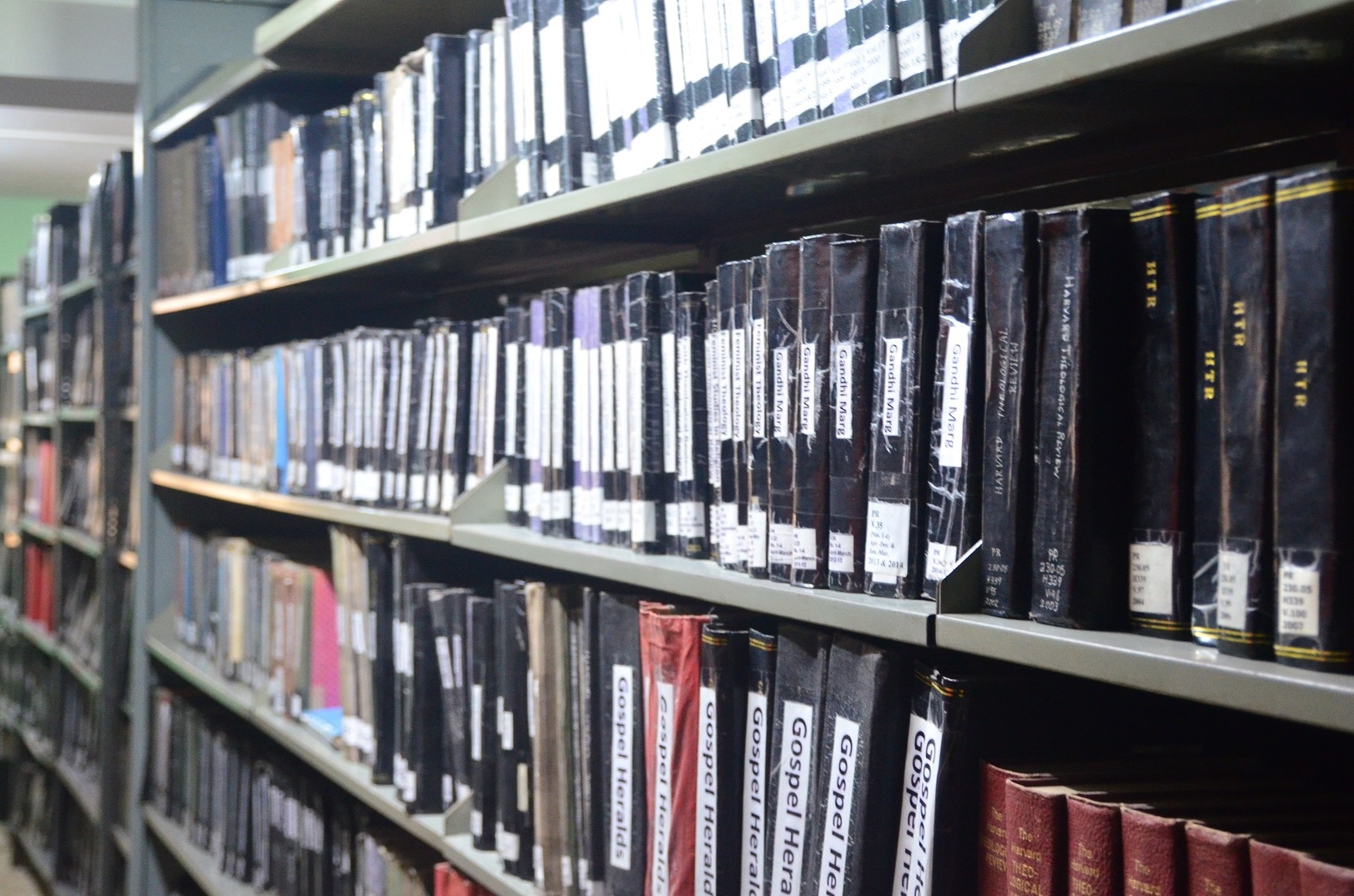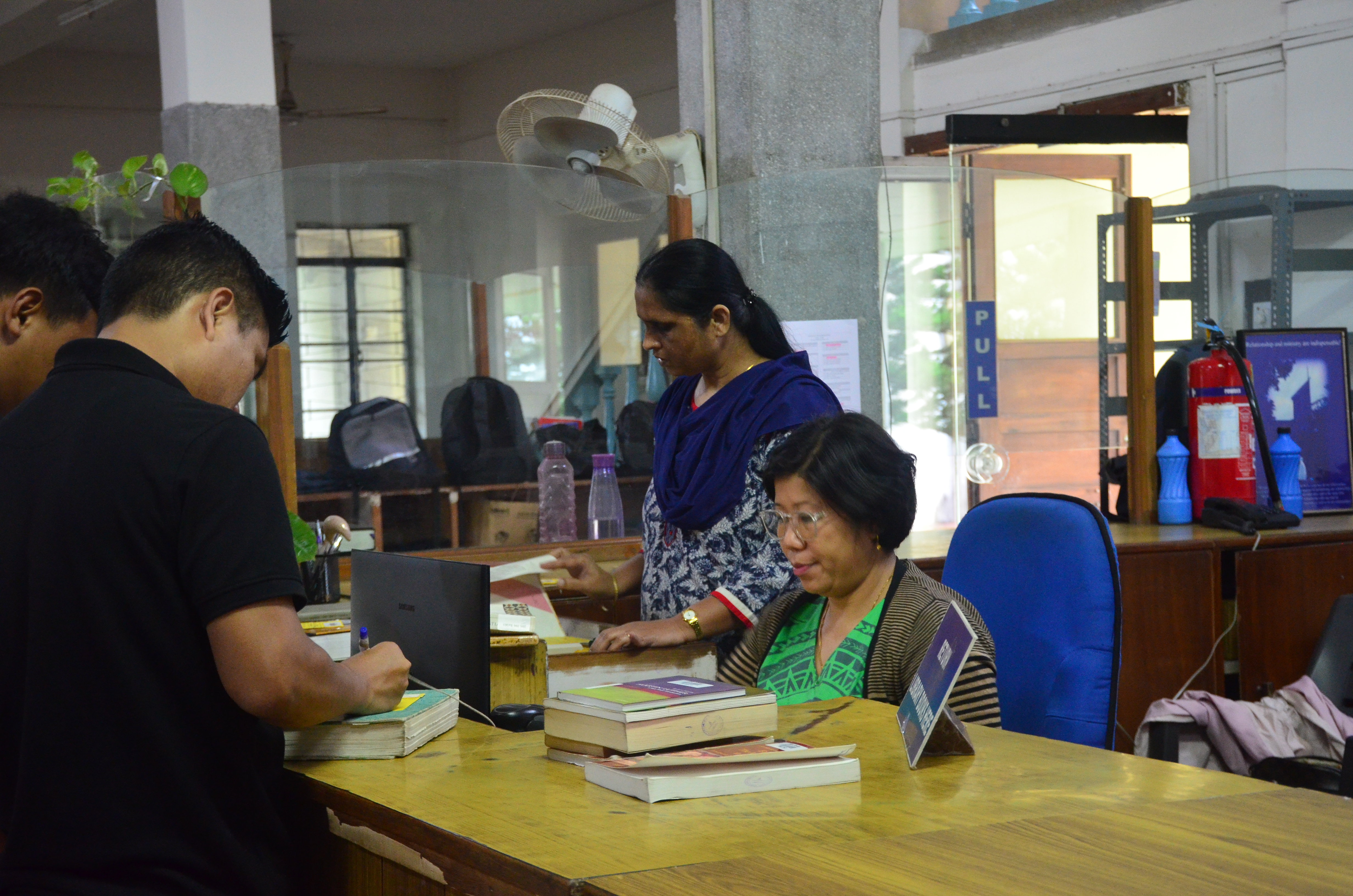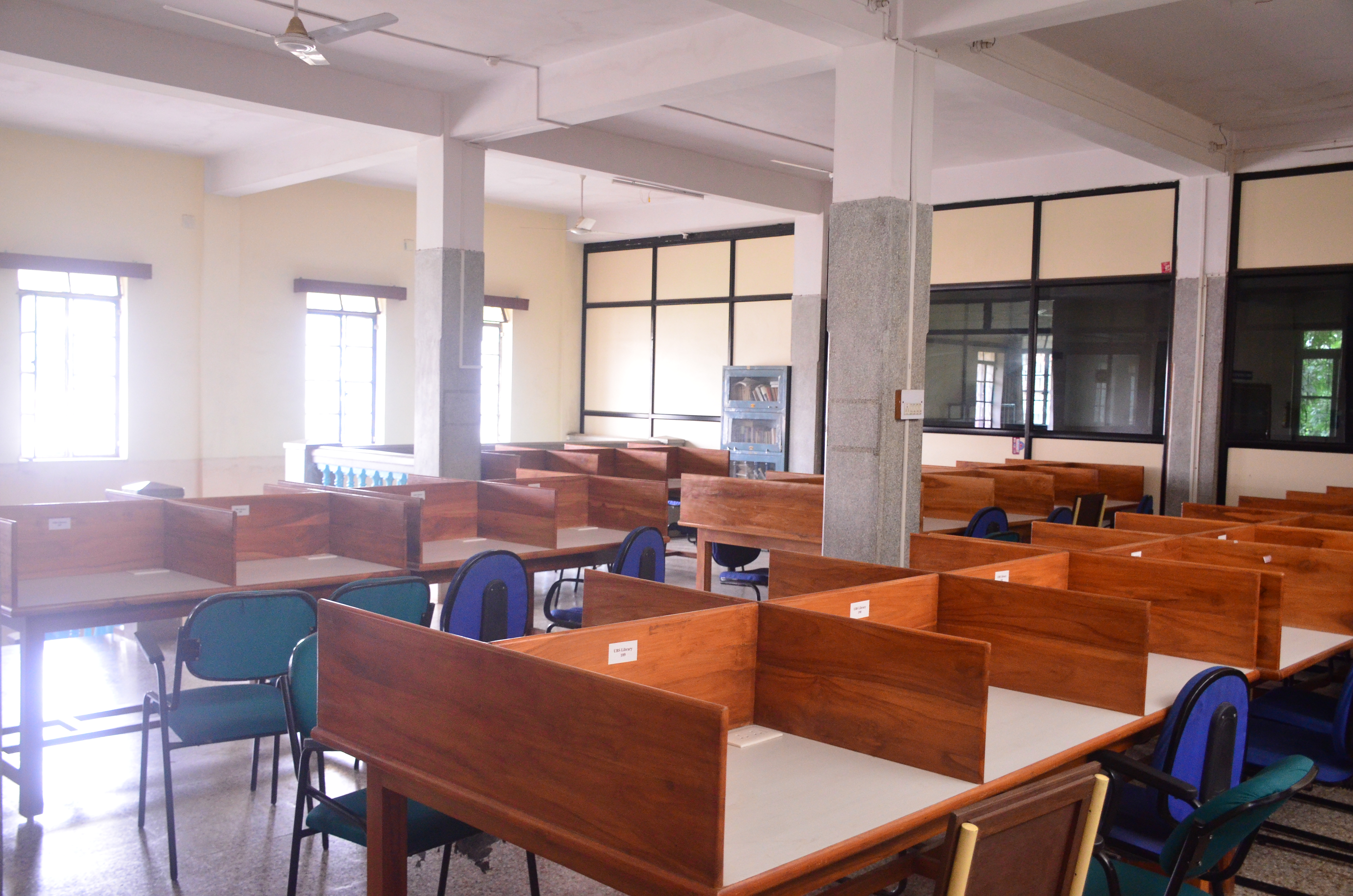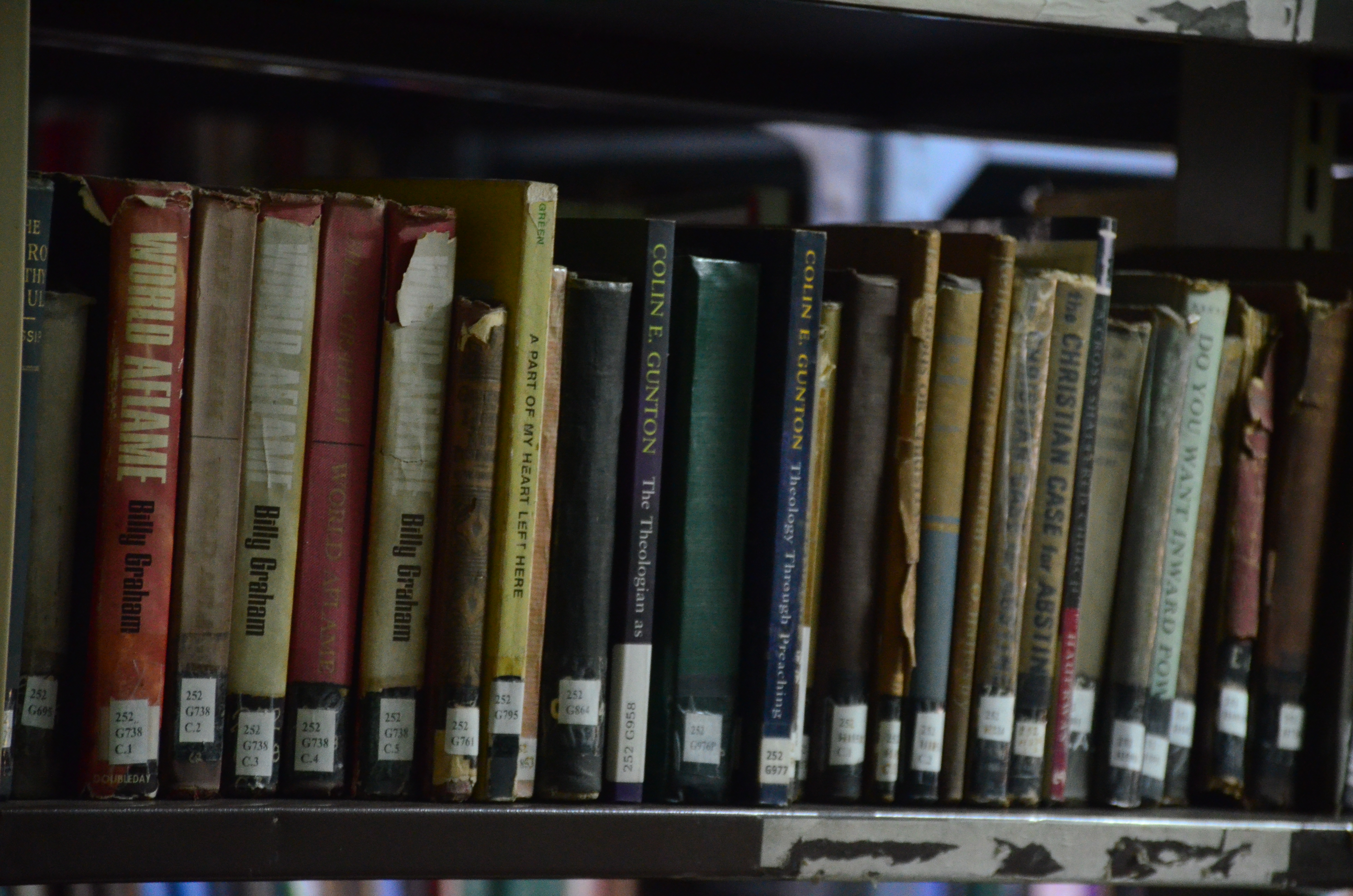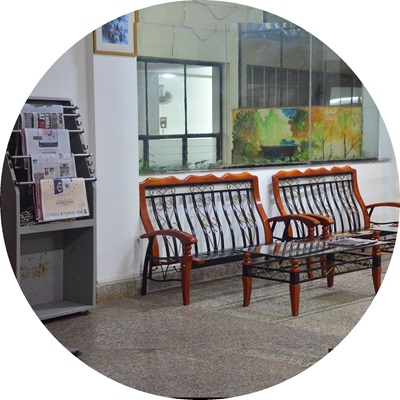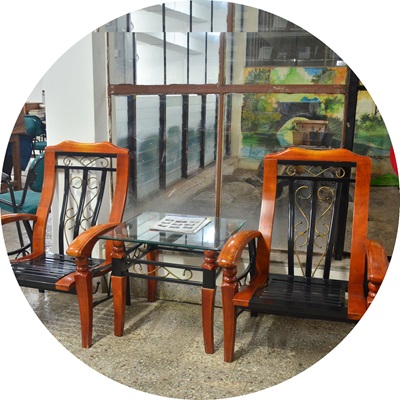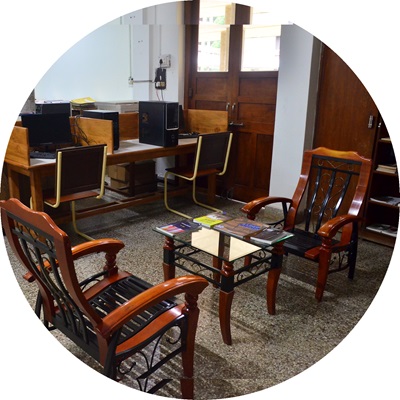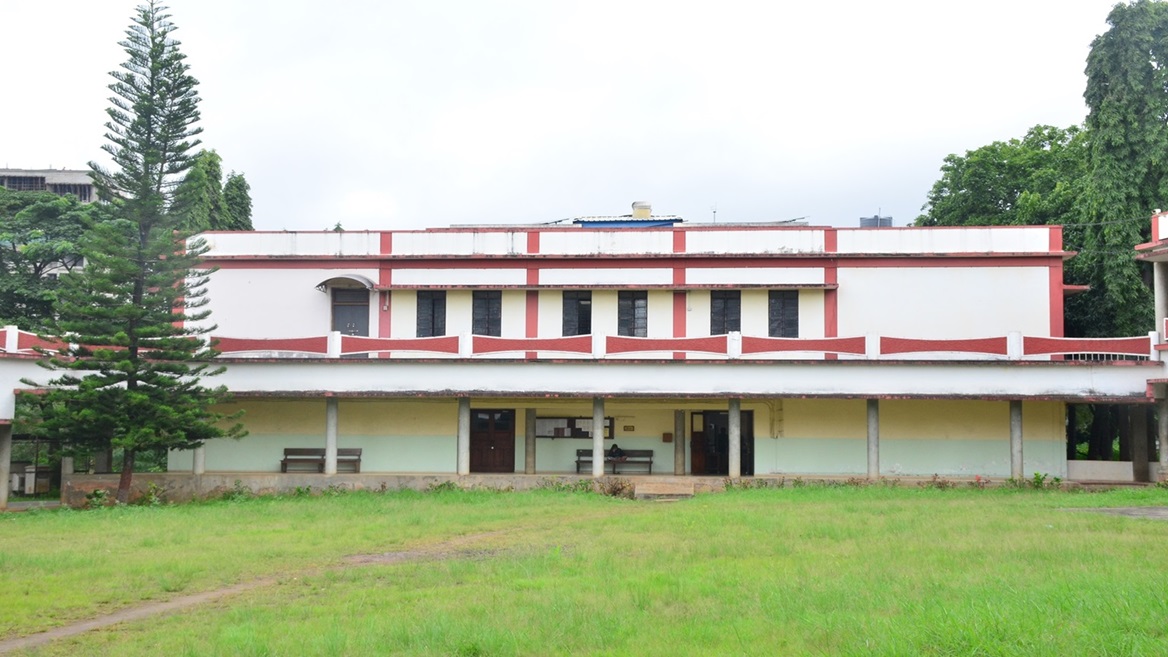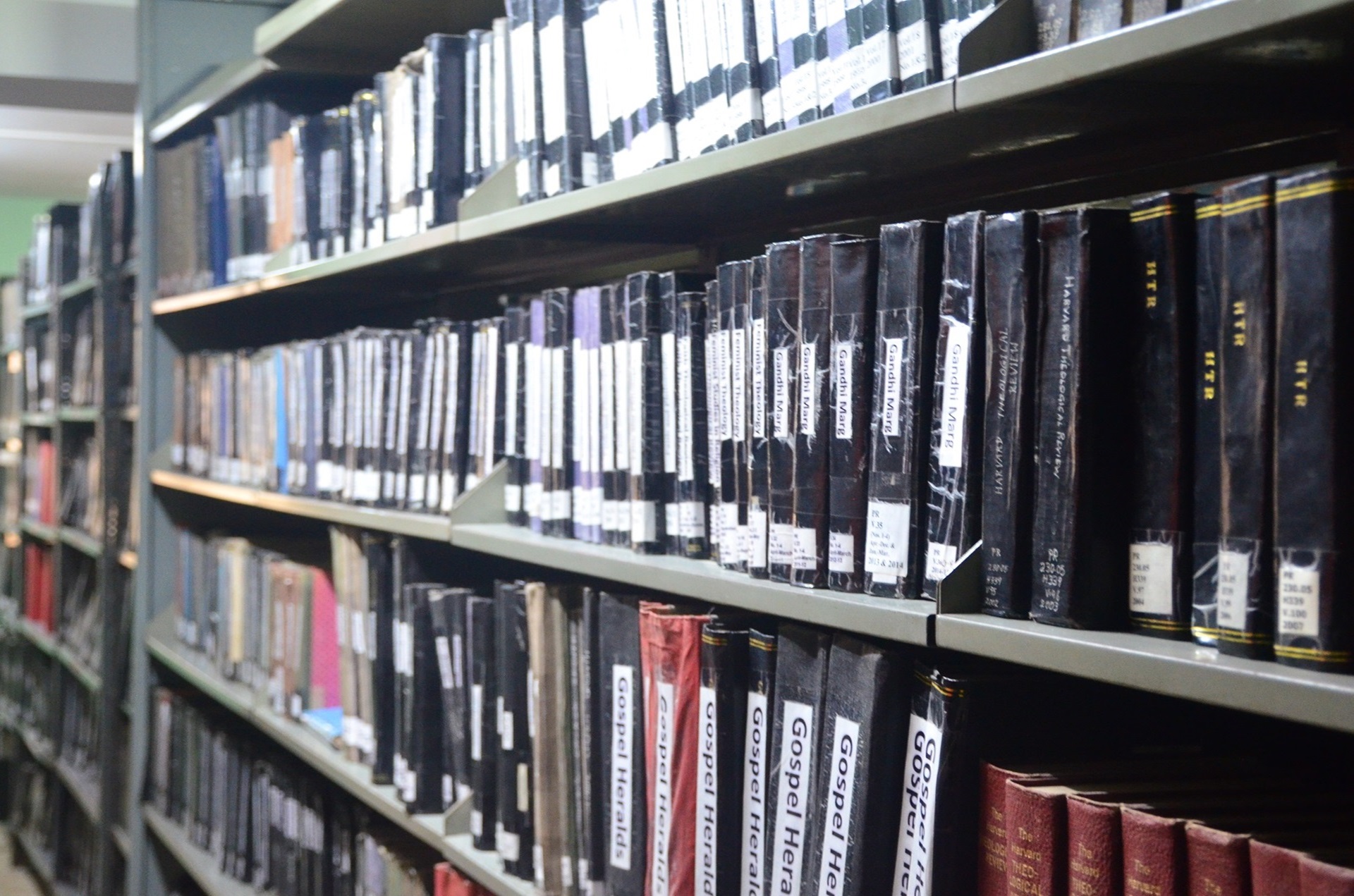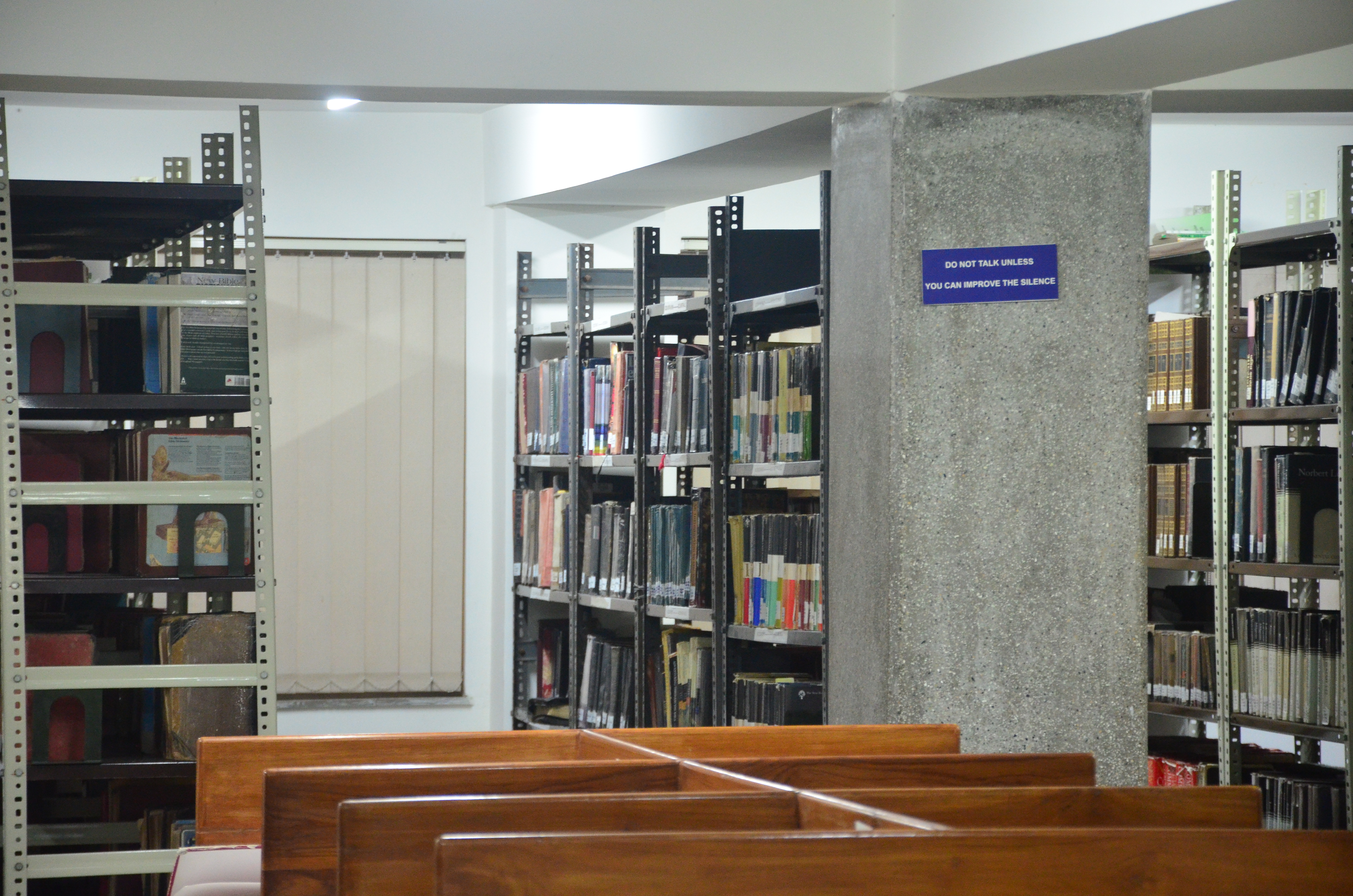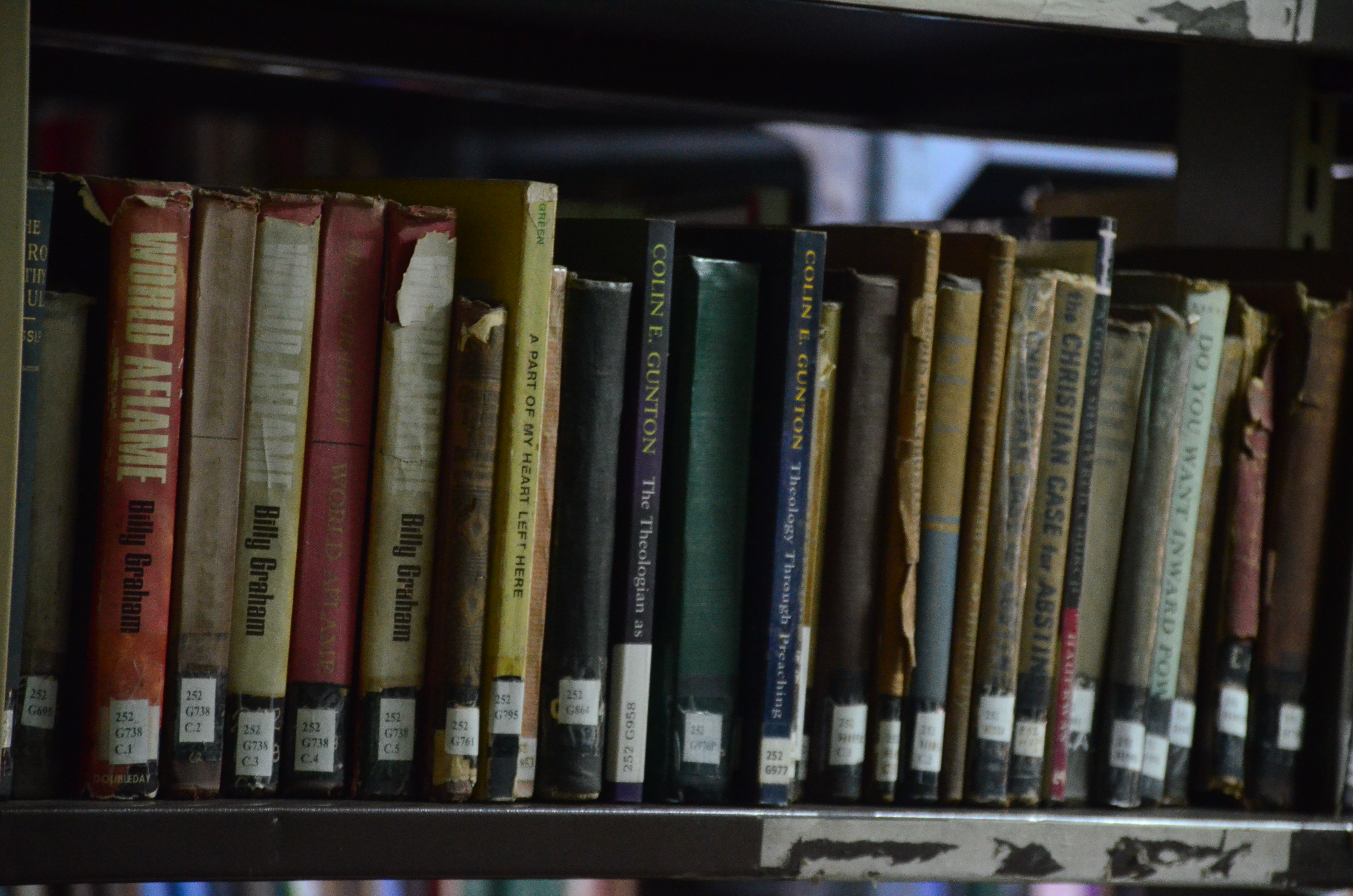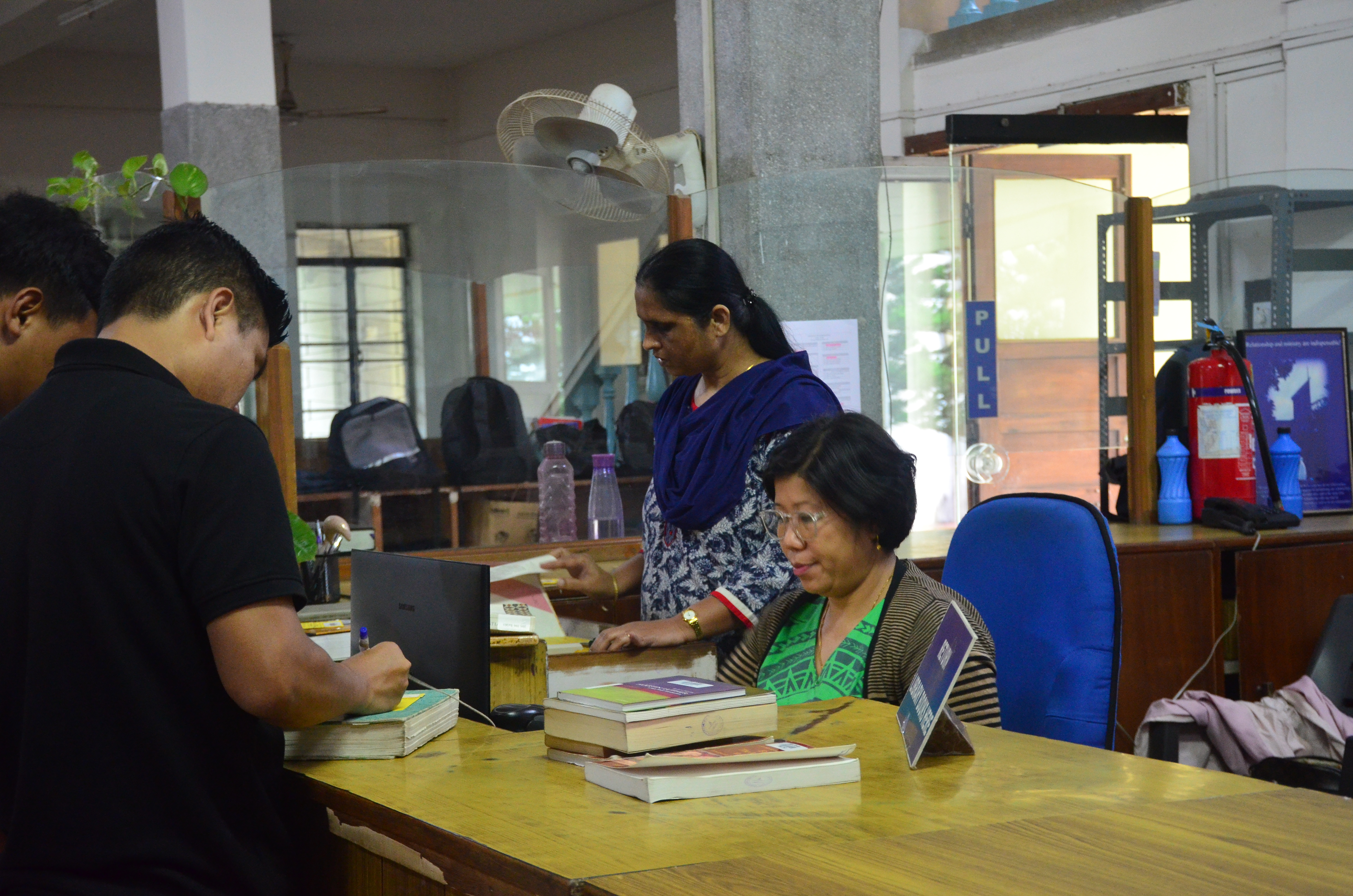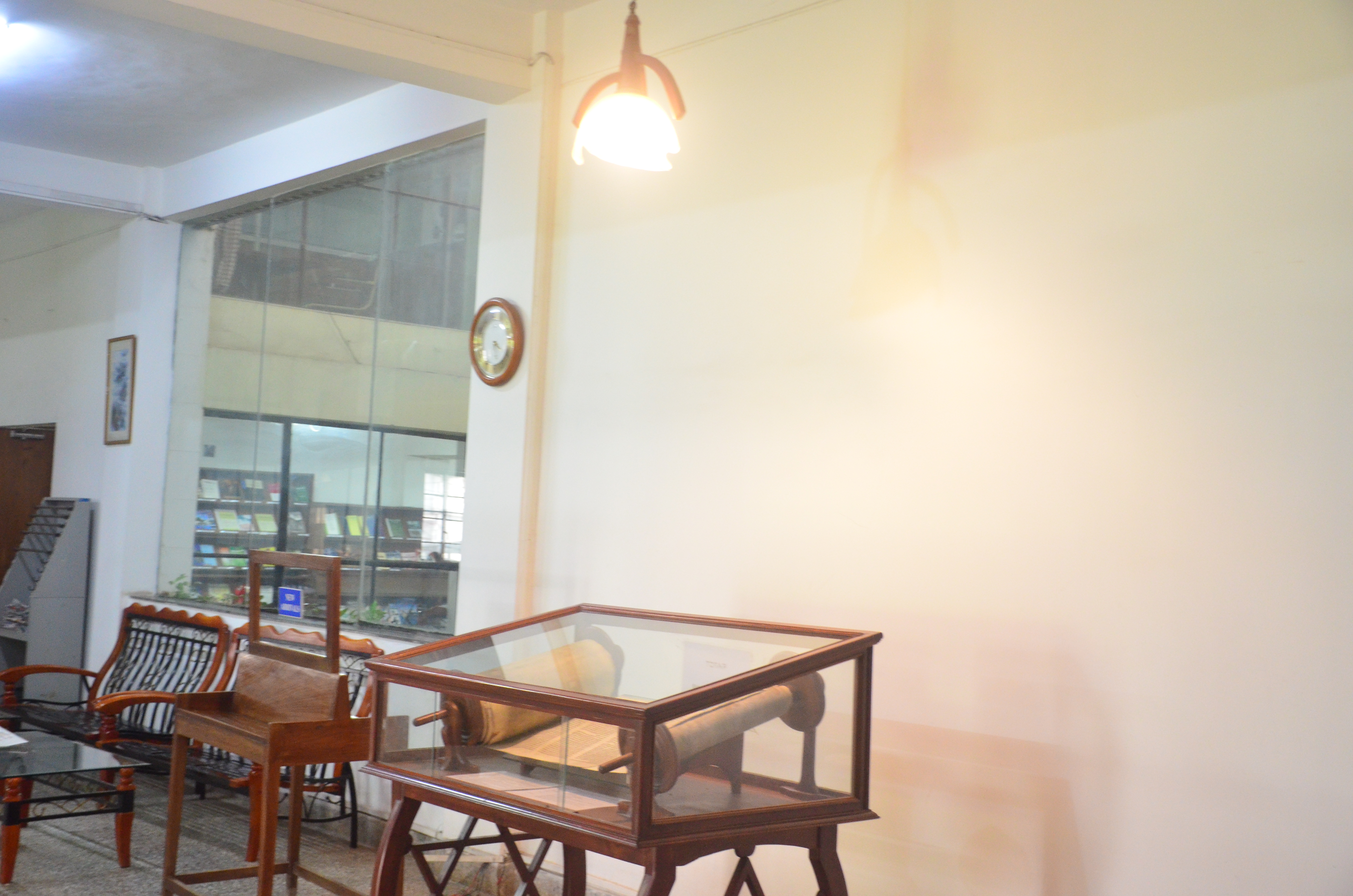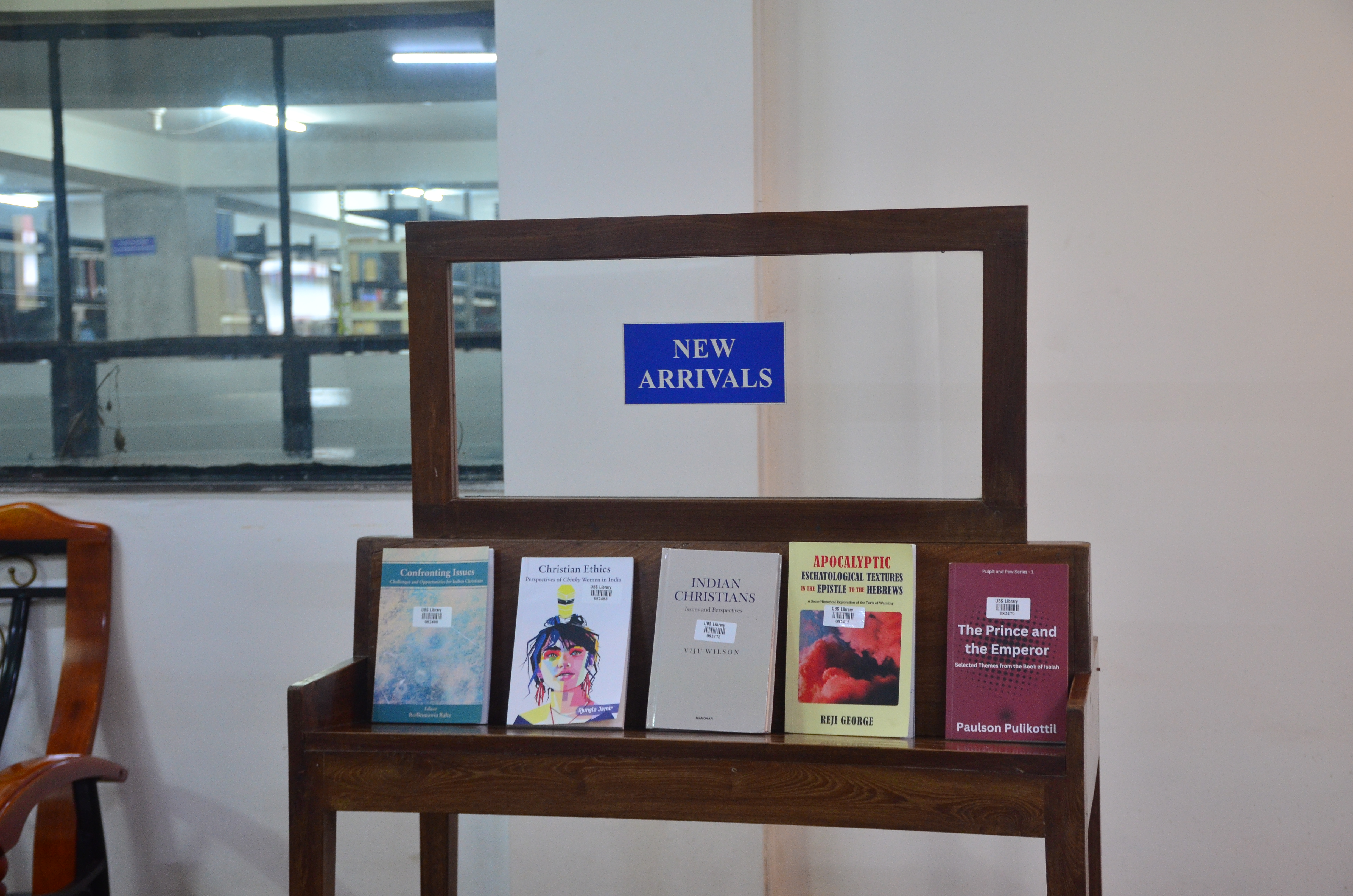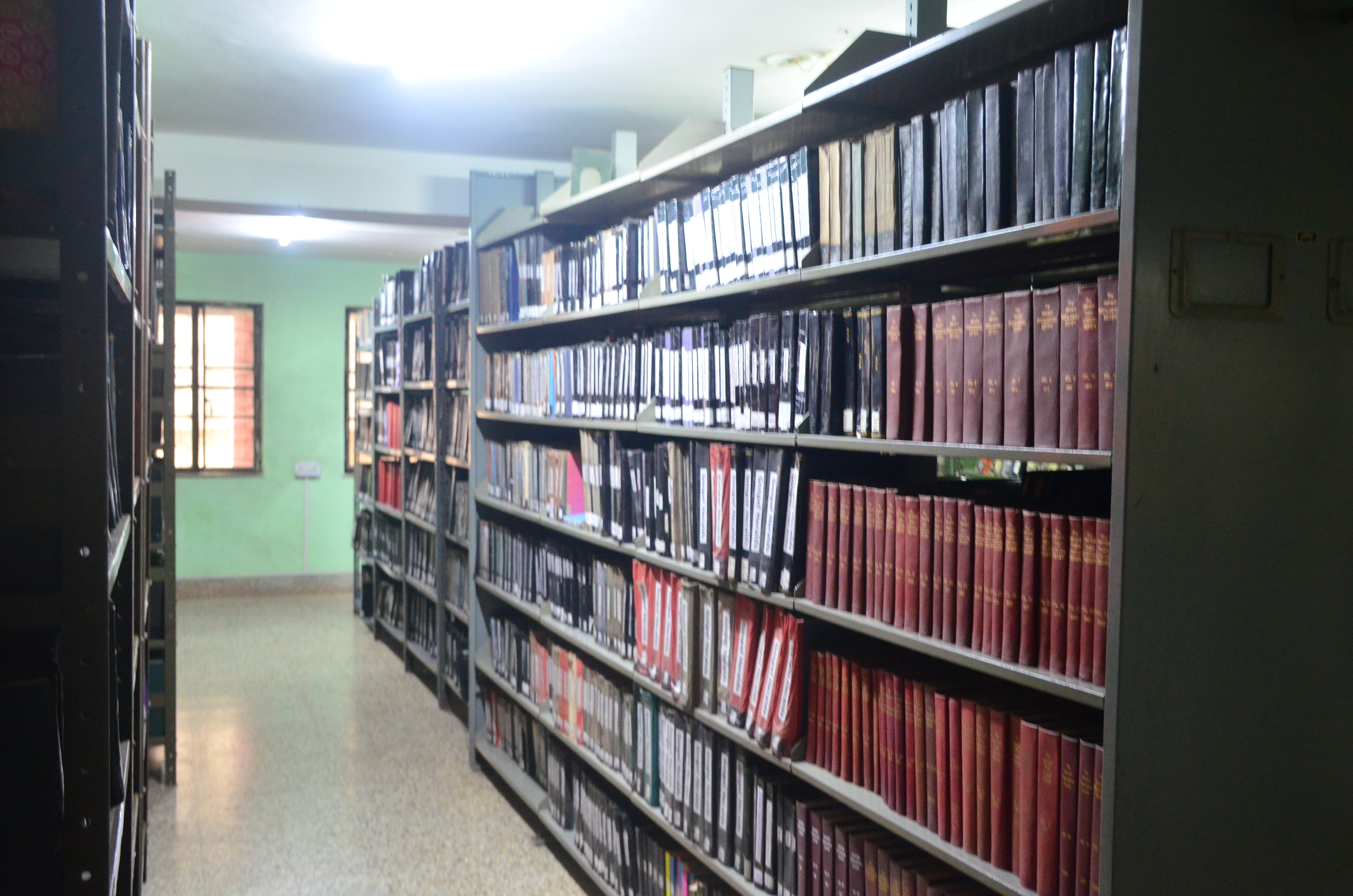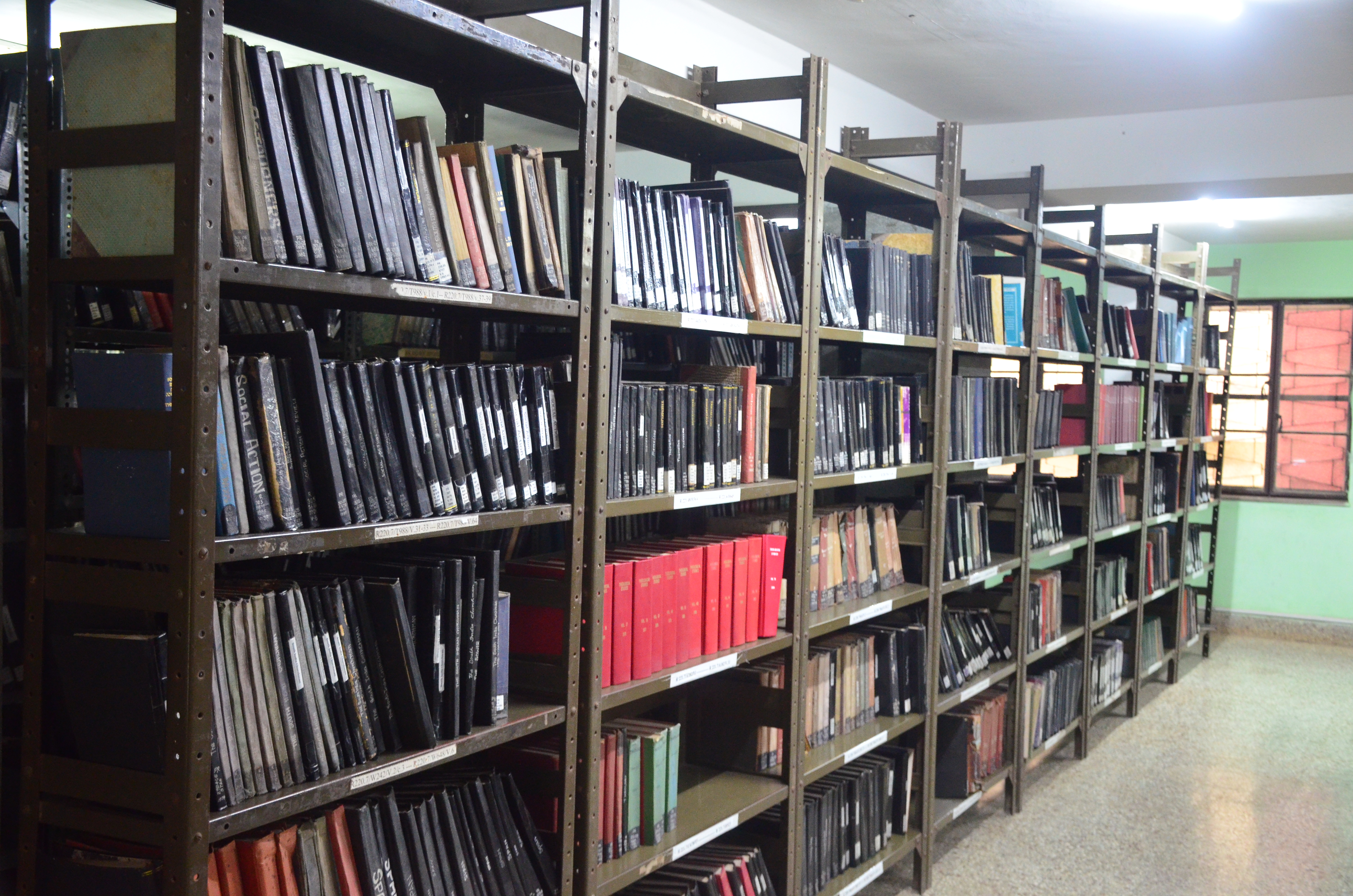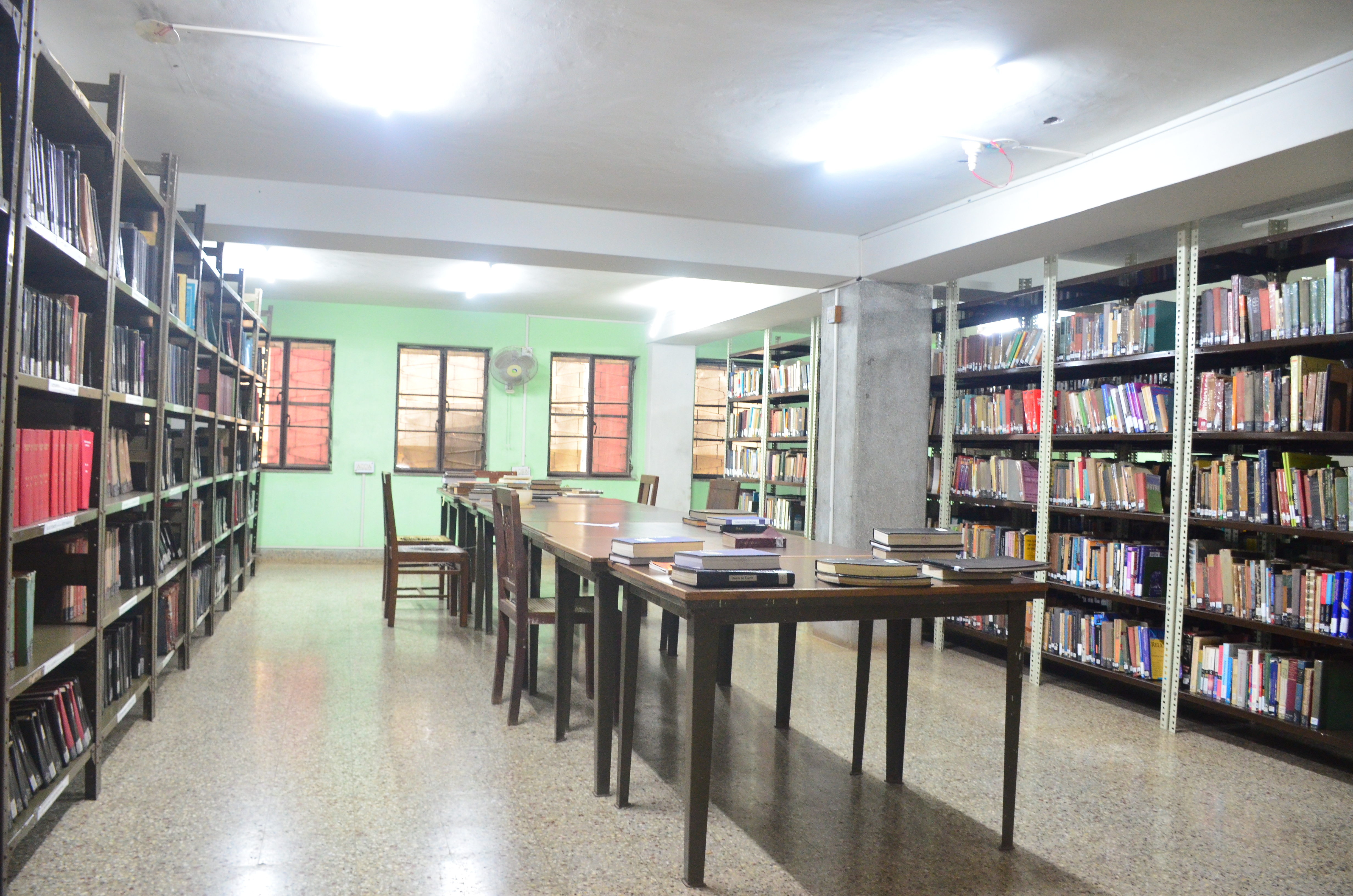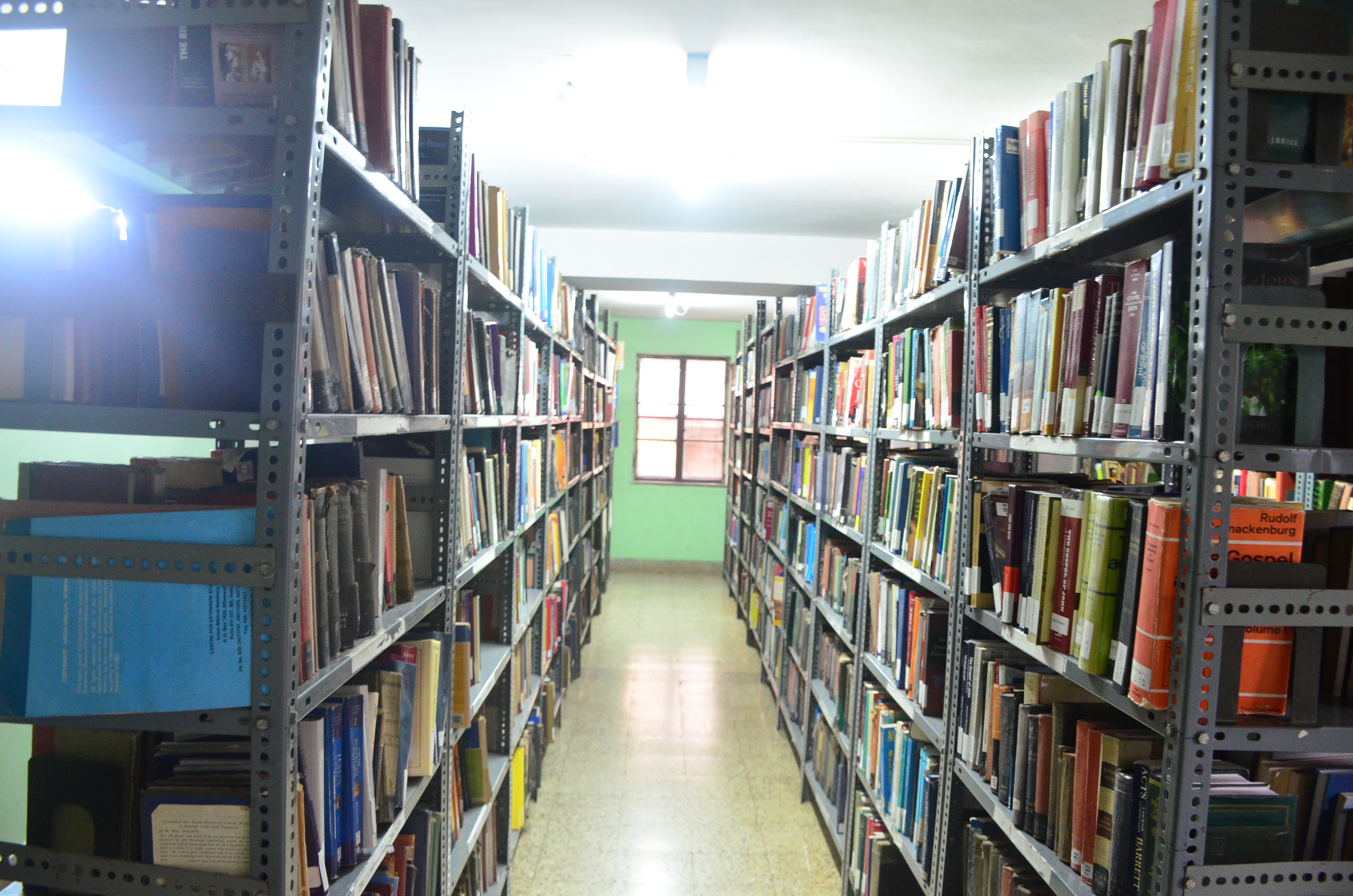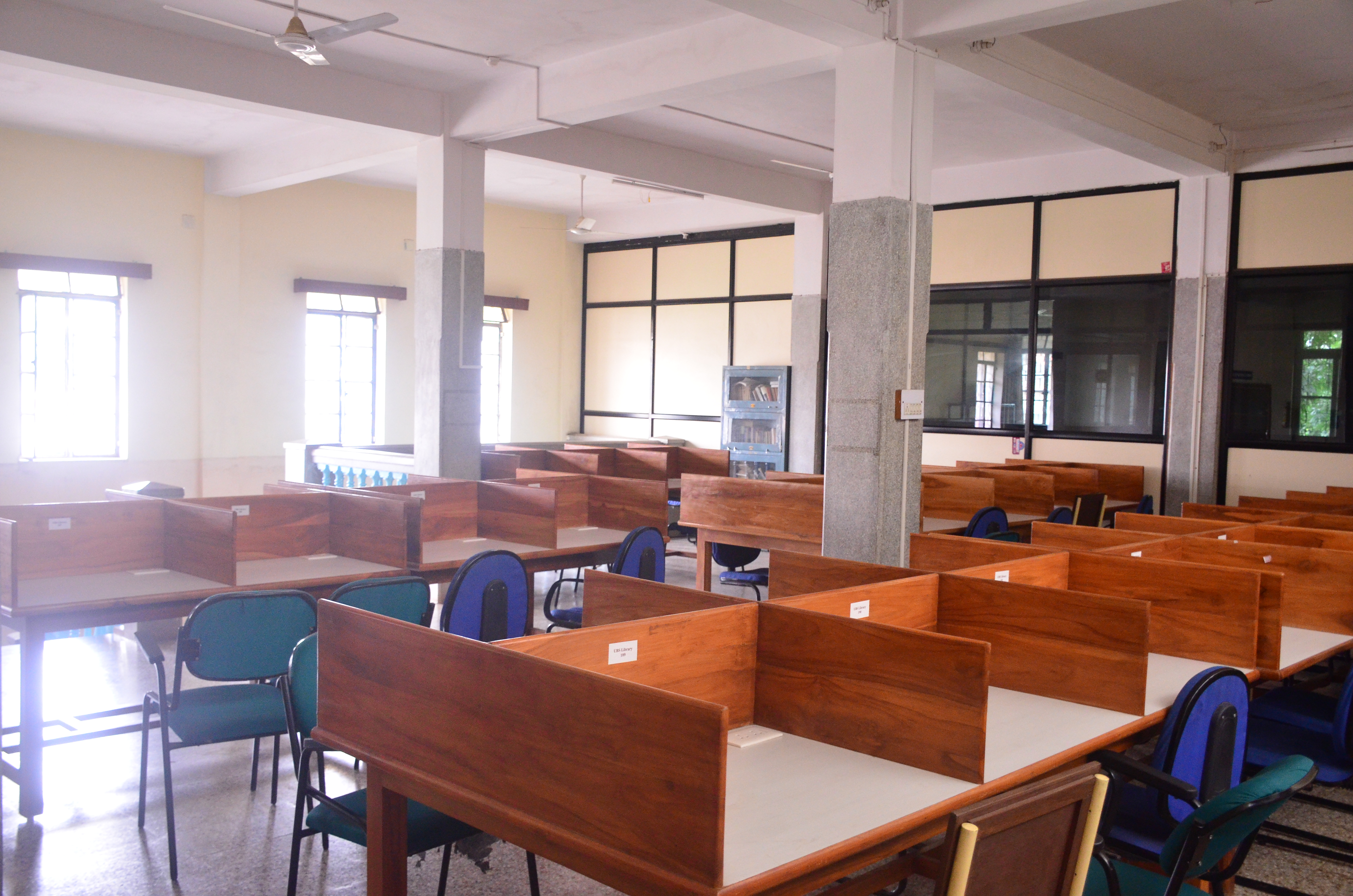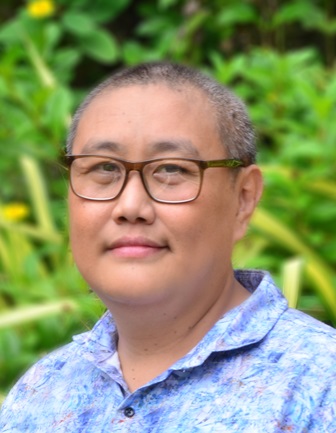Access to our Library
A. Class Hours
1. When Classes are in Session
Monday-Friday: 8:30 am-10:00 pm
Saturday- 8:30 am-1:00 pm.
2. During Exam
Monday-Friday: 8:30 am-11:00 pm
Saturday- 8:30 am-5:00 pm
Students are not allowed to use the library during the chapel time and seminary programs.
3. Check-in & Check-out
Monday: 8:45 am-3:45pm
Tuesday-Thursday: 8:45 am-4:45pm
Friday: 9:00 am-3:45pm
4. Breaks
Monday-Friday: 1:00-2:00 pm
Monday-Friday: 5:00 pm-8:00 pm
5. Contact
E-mail: library@ubs.ac.in
B. Policies and Facilities
1. Registered students, faculty, and staff can use the library resources & services. Without permission, children are not allowed.
2. UBS Distance Learning students can produce a letter from the Distance Learning Coordinator for regular use of the library. Registered users would be given library user-number. Use it to access OPAC, check-out & check-in, and hold.
3. Registered users kindly fill in personal information using the OPAC link. Kindly make sure you add your email address. The username is your library user number, and the default password would be provided by the librarian/faculty in-charge.
4. UBS Alumni can use the library by paying Rs. 50/day or Rs. 100/week or Rs. 250/month or Rs. 2,500/annum
5. Local Pastors and Theological Researchers have to pay Rs. 100/day or Rs. 200/week or Rs. 500/month or Rs 5000/annum to use the library.
These fees are for in-house use of library resources only. A formal request letter with approval from the UBS principal or Librarian is required for the same.
6. Other researchers recommended by pastors/theological teachers/heads of theological institutions can use the library by paying Rs. 1,000/month. These fees are for in-house use of library resources.
7. Visitors can avail of internet and access to online resources by paying Rs. 300/month.
C. General Instructions
1. Strict silence and discipline to be maintained in the library.
Library space is for academic purposes only.
2. Use of social media is not permitted in the library.
3. Talking or group discussion is not permitted.
Users should maintain an atmosphere of dignity, peace, and quiet within.
4. Use the library books and furniture very carefully. Keep the furniture/chair in its place after use.
5. Switch off the light/fan / AC while leaving your respective places.
6. Proper care of books should be closely observed since rough usage will shorten their life span.
7. Wear a formal and modest dress in the library.
8. No food and beverages are not allowed in the library.
9. Do not replace any books/journals. Leave them on the reading table after use. The library staff will shelve it for you.
10. Reference books/ periodicals/ current newspapers cannot be checkout and are to be referred to only in respective designated areas.
11. All members are required to deposit their belongings outside the library at their own risk. Briefcases and bags are not allowed inside the library. Users can carry laptops / tabs.
12. All students (except the assigned stipend workers) are strictly forbidden to enter the Circulation Counter.
13. Items taken out of the library are subject to inspection by the library staff. This is a routine procedure and your co-operation is solicited.
14. Lost and found (of belongings) inquiries should be made at the Circulation Counter.
15. The closing buzzer signals the closing routine for the chapel, other special events, and closure of the library. It will be heard two times in succession, at 15 minutes and 5 minutes before the closing time.
16. Books requiring the circulation attendant’s assistance must be checked out at least 15 minutes before closing.
17. Lost library materials (books, periodicals, etc.,) should be reported to the Librarian/ Faculty In-charge immediately. If the lost item is not found within a reasonable period, the borrower must pay for a replacement copy plus Rs.100/- as processing charges. If a book in a series is lost, and if it alone cannot be obtained, the whole series should be replaced.
Fines:
1. A fine of Rs. 5/day will be charged on late return of General books. Fine for Temporary Reference books is Rs. 10/hour. Users can pay a fine at the circulation desk at the time of returning the books. Users cannot issue or reissue books until the fine is paid.
2. Photocopy of library books is not permitted. This is to avoid physical damage to the books. Users can take photos using their personal gadgets with proper care. Photocopy can be done with the special permission of the librarian/ Faculty In-charge.
3. When leaving the library, be sure all library materials have been properly checked out. No book or periodical may be taken out of the library under any circumstances unless it is signed out according to rules. Any item taken from the library without proper checkout is considered stealing.
4. All cases of disregard of these rules will be reported to the principal for appropriate action.
5. Contact library staff if you experience any difficulty in locating any resources.
6. Difficulties, if any, should be discussed with the librarian/Faculty In-Charge of the Library.
7. Library attendance is compulsory for BD students.
D. Book Handling and Classifications Scheme
1. Remove books from the shelf with care, one at a time. Place fingertips on the text block and tip the book out rather than tugging at the spine, which can be easily torn or broken.
2. Use paper flags/bookmarks to mark pages while using. Sticky notes leave an adhesive residue that attracts dirt, and paper clips crimp and tear. Even plain paper inserts can be damaging if there are too many of them.
3. Please do not write or make any mark of any kind on the library materials either by ink or pencil.
4. Defects found in the books for reading or borrowing should be brought immediately to the notice of the staff on duty at the time of issuing.
The Dewey Decimal Classification (DDC) scheme is used in UBS Library to bring materials about a subject together.
Dewey’s system is a combination of numbers and letters with decimal principles.
Dewey divided all knowledge into nine classes, which he numbered 000 to 900. Materials that are too general to place in a specific group (encyclopedia, dictionary, newspapers, magazines, etc.) he placed in the tenth class, which he named as 000 class. So, there are nine subject classes and one general class. Thus, he divided the entire knowledge into ten main classes as follows:
000 -099 General works
100 -199 Philosophy and related disciplines
200 -299 Religion
300 -399 Social Sciences
400 -499 Language
500 -599 Pure sciences
600- 699 Technology (Applied sciences)
700 -799 Arts
800 -899 Literature
900 -999 Geography and history
The Dewey decimal system is a number system to classify books into the above ten major categories. These major divisions are then subdivided into ten. For example, 200 designated Religion. So, it is subdivided as:
210 Natural Religion
220 Bible
230 Christian Theology
240 Moral and devotional theology
250 Pastoral Theology
260 Social and Ecclesiastical Theology
270 Church History
280 Christian denominations and sects
290 Other religions
All library materials are arranged on the shelves in strictly numerical and decimal order, regardless of the number of digits in the classification number.
E. Check-in and Check-out
1. General Books:
Bring the selected books to the circulation desk, fill in details on the yellow book card, and submit them to the staff at the counter. Issuing books on other cardholders’ accounts is not permitted. Temporary reference/essential books suggested by faculty can be issued by signing the register near the Circulation Counter. Books requiring circulation must be checked out at least 15 minutes before counter closes.
2. Temporary Reference Books:
These books are selected by faculty for a subject. They are placed behind the Circulation Counter. A file is kept containing the title & table of content of each book. Users can request the circulation staff for access. These books can be used on an hourly basis.
3. Non-Print Materials & Rare Books:
These resources can be used with the special permission of the librarian. Contact the librarian or library staff to use these resources. Please use these resources with utmost care and precision as they need special care and handling. They are fragile, old, rare, and out-of-print.
F. Circulation Policy
1. Placing Holds:
Students may place a “hold” on a general book, which is already checked out. Users can keep the resource on hold using OPAC.
2. Renewals:
A book can be renewed once unless someone has placed a “hold” on it. To renew a book, use the OPAC.
3. Distance Learning Students:
They are not allowed to check out any library books.
H. Physical Structure
1) The Reference Room:
This is on the ground floor. The reference collection consists mainly of materials published for consultation rather than continuous reading. These are the dictionaries, encyclopaedias, commentaries, bibliographies, indexes, directories, yearbooks, and other books of this type to which people refer for specific information. This room also hold periodicals (journal, publication, magazine, review, digest, newsletter, serial, annual, quarterly, monthly, bimonthly, fortnightly, weekly, biweekly) and theses (BD, MTh, and DTh), are kept on display on the ground floor in the Reference Room.
2) The Archives:
This is on the first floor. It is the official repository for all records, papers, documents and other materials of historical value generated by or related to the Seminary & individuals, past & present, affiliated with it. The holdings span the entire history of the Seminary and represent virtually every aspect of Seminary life including extensive photographic archives and audio-visual archives. The archives collect and organize both primary and secondary source materials for purposes of reference, research and general interest. The Archive holds an outstanding collection of the history of mission work in India and Indian Christian theology & theologians, which includes rare manuscripts and documents of Pandita Ramabai (Indian Christian social reformer), Rev. Narayan Vaman Tilak (Marathi poet and famous convert to Christianity) and others.
3) The Stack Rooms:
These are on the first, second and third floors. Bound Periodicals which are yearly bounded issues of a journal or magazine are placed on the first floor. These are for inhouse reference only. The General Collection books and documents are placed on the second and third-floor stack area. All resources found in the general collection can be issued. Distance Learning Department Books are placed on the ground floor (English) and first floor (Hindi & Marathi). These books are for inhouse reference only.
4) Resource and Research Center(R&R):
This is on the ground floor. This hall contains numerous Personal Study Carrels with lockers and shelves, which are assigned to DTh, MTh and other researchers.
5) Reading Area:
BD students are provided with tables and comfortable chairs on the ground and on the first floor. The Bound Periodical area also contains tables and chairs. English, Hindi, and Marathi newspapers are kept in front of the Circulation Desk
6) Restrooms:
There are three restrooms on the ground floor. One is strictly for the library staff and the other two are for library users.
7) A Storeroom:
UBS imports boxes of books through the Theological Book Network (TBN) which are stored in this room. Apart from these many donated books are also stored in this room.
G. Facilities
1) Essentials:
i. Some computers and a printer are kept on the Ground Floor for library users.
ii. Photocopy services can be availed after payment. This facility is currently unavailable.
2) Catalogue:
UBS Library can be searched using an OPAC (Online Public Access Catalogue) called KOHA. Link: http://ubs-koha.informindia.co.in
3) Devotional/Non-academic Books:
These are mostly donated books. They are kept in the Coffee Table Area near the Circulation Desk.
4) Temporary Reference Books:
These are books selected by a subject teacher. They are kept behind the Circulation Desk for a semester.
5) Online:
(i) EBSCO – Our subscription includes ATLA Religion Plus, New Testament Abstracts and Old Testament Abstracts.
(ii) SAGE Journals – Our subscription includes Journal for the Study of the Old Testament, Journal for the Study of the New Testament, Theology, Journal of Psychology and Theology, Studies in History, Indian Historical Review, International Journal of Christianity & Education, Journal of Pastoral Care & Counselling, Missiology: An International Review, International Bulletin of Mission Research, Studies in Christian Ethics, Studies in Religion/Sciences Religieuses, and Vikalpa Journal. These sources are currently unavailable
(iii) JSTOR Collection - This can be accessed via British Library online membership. Kindly contact the Faculty In-charge/Librarian for assistance in availing select articles.
(iv) Global Digital Theological Library – Kindly contact Librarian/Library In-Charge for assistance.
6) A Torah Scroll:
One precious item in the library is a Torah Scroll. This scroll was gifted by Ken and Barbara Larson on 8th January 2018. It is placed right in front of the entrance.
7) Study Cabins:
There are three Study Cabins each on the first, second and third Floors close to the stack areas. These Study Cabins are well furnished and are usually assigned to visitors who are permitted to use the library during the day.
8) A Water Purifier:
Clean drinking water is available.
9) Wi-fi:
Wi-fi connections are available. For better connectivity UBS Library has routers spread across its building. Registration is required to access the internet provided by the Seminary. Through this all-online subscriptions are available to a user.
